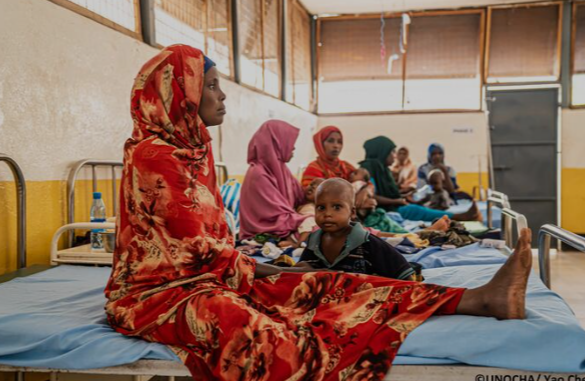African Region Sees Further Decline in TB Deaths, Cases

African Region Sees Further Decline in TB Deaths, Cases
The African region has witnessed a significant decline in tuberculosis (TB) deaths and cases, marking a positive development in the global fight against this infectious disease. According to the World Health Organization (WHO), the region has made remarkable progress in reducing both the prevalence and mortality rates of TB over recent years.
In its latest report, the WHO highlighted the success of several African countries in strengthening their TB control programs, improving access to diagnosis and treatment, and enhancing public health infrastructure. The decline in TB cases is attributed to efforts such as increased awareness campaigns, improved access to anti-TB drugs, and a greater focus on early detection and treatment adherence.
The Path to Decline
The WHO Global Tuberculosis Report showed that in 2023, the African continent recorded a significant reduction in TB deaths, down by more than 10% compared to previous years. Countries like South Africa, Nigeria, Kenya, and Ethiopia have been at the forefront of this progress, implementing national policies that target high-risk populations and providing integrated care that combines TB services with HIV treatment.
Key interventions include:
-
Universal access to TB treatment.
-
Enhanced diagnostic capabilities with rapid molecular tests and X-ray facilities.
-
The expansion of multi-drug resistant TB (MDR-TB) treatment programs.
-
Collaborative efforts between governments, NGOs, and international partners to strengthen national health systems.
The Role of Global Partnerships
The decline in TB cases is also a result of international collaborations. The Global Fund and the U.S. Agency for International Development (USAID) have provided financial and technical support, enabling countries to scale up their TB programs.
The WHO’s End TB Strategy has been pivotal in guiding national TB control efforts, focusing on eliminating TB as a public health threat by 2030. This ambitious goal aims for a 90% reduction in TB incidence and a 95% reduction in TB deaths compared to 2015 levels.
Challenges Remain
Despite the progress, challenges remain in the African region, where TB continues to affect vulnerable populations, including people living with HIV, those in conflict zones, and populations with limited access to health care. The emergence of drug-resistant TB strains poses a growing threat to the region’s efforts to control the disease.
Additionally, some countries still struggle with underreporting and gaps in data collection, which could hinder further progress in eliminating TB. COVID-19, with its significant impact on global health systems, has also disrupted TB services in certain regions, resulting in delays in diagnosis and treatment.
Looking Ahead
The WHO remains optimistic about the future of TB control in Africa, especially if countries continue their efforts to expand universal health coverage and integrate TB services with other health programs, such as HIV/AIDS and maternal health.
With continued commitment, adequate funding, and improved health systems, the goal of ending TB in Africa by 2030 remains achievable. Governments, international organizations, and communities must remain united in their efforts to tackle the disease, ensuring that progress made over the past years is sustained and built upon.
The continued decline in TB deaths and cases in Africa serves as a reminder that significant strides can be made in the battle against infectious diseases, even in regions facing complex challenges.
More News



